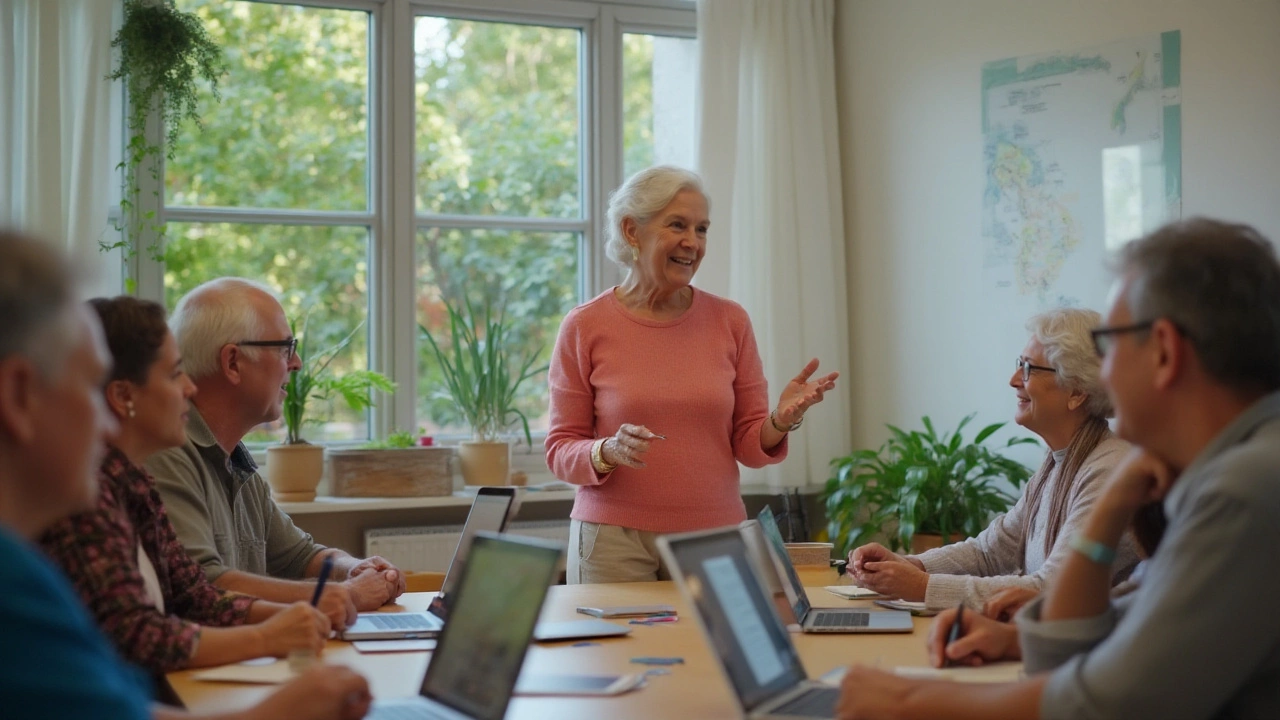Older Adults Learning: Practical Tips & Resources
Thinking about picking up a new skill after 60? You’re not alone. Lots of people discover that learning later in life keeps the mind sharp, opens doors to new hobbies, and adds a social boost. The good news is that you don’t need a fancy degree to start – just a few simple steps and the right support.
Why Keep Learning After 60?
Research shows that regular mental challenges can delay memory loss and improve overall brain health. Learning also gives you a reason to get out of the house, meet new folks, and feel a sense of achievement. Whether it’s a short‑term certificate, a community art class, or a tech workshop, each experience builds confidence and keeps daily life interesting.
St. Andrews Educational Institution in Shifnal offers flexible programs designed for senior learners. Courses are timed to fit daytime schedules, and many are delivered online so you can join from the comfort of your living room.
Easy Ways to Start Learning Today
1. Try an online short course. Platforms like Coursera or FutureLearn have free or low‑cost classes in everything from digital photography to basic coding. Look for courses that run 8‑12 weeks – they’re short enough to stay motivating but long enough to see real progress.
2. Join a local community group. Libraries, community centres, and churches often run workshops for seniors. These are great for hands‑on activities like gardening, knitting, or oral history projects.
3. Use St. Andrews’ adult‑learning resources. Our faculty offers one‑on‑one tutoring, group study sessions, and practical workshops. You can sign up for a “learning after 60” series that covers study techniques, memory tricks, and how to stay organized.
4. Set realistic goals. Pick one topic you’re curious about and aim to spend 20‑30 minutes a day on it. Break the material into bite‑size chunks – it’s easier to stay on track and you’ll see progress faster.
5. Stay social. Pair up with a friend or join an online forum for senior learners. Discussing what you’ve learned reinforces knowledge and adds a fun social element.
Remember, you don’t need to become an expert overnight. The goal is to enjoy the process, keep the brain active, and maybe discover a new hobby you love. Start with a small step today – sign up for a free introductory class at St. Andrews or explore a short‑term online certificate. Your future self will thank you.
Effective Strategies for Adult Learning: Unlocking Potential in Older Adults
Understanding how older adults learn best can revolutionize adult education. By identifying the unique ways older adults absorb information, educators can tailor teaching strategies that align with their needs. Factors like motivation, experiential learning, and adaptability play a significant role in the learning process for older adults. These elements, combined with practical tips, can create an empowering educational environment. This article delves into effective methods and insights into optimizing learning experiences for older adults.
More
